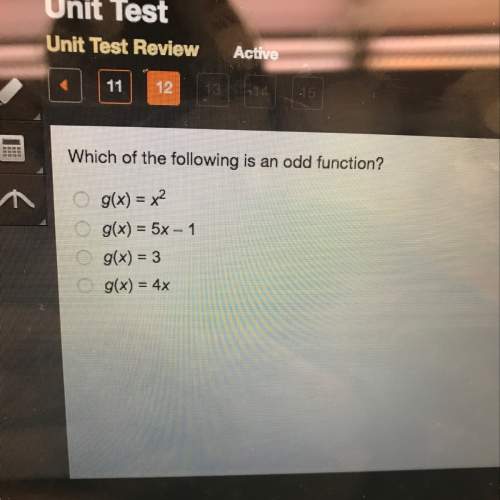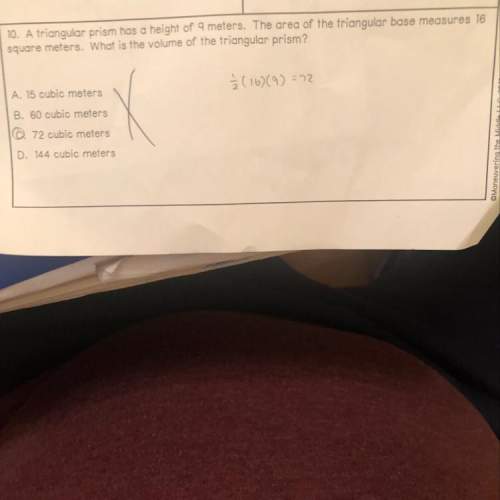
Mathematics, 05.04.2020 08:22 breannaasmith1122
Consider the following function for t ≥ 0, y=exp(-3*t)*cos(kx-9*t+0.8)
(a) The derivative dy/dt (at fixed k and x) =
(b) At t=0, the maximum value of y =
(c) At t=0, the minimum value of y =
(e) For x=0, at what t closest to zero is dy/dt=0? t =

Answers: 1


Another question on Mathematics

Mathematics, 21.06.2019 22:50
Jim had 15 minutes to do 5 laps around his school what would his time be
Answers: 1

Mathematics, 22.06.2019 01:30
What is the solution for the following system of equations? use any method to solve. 2x + 8y = 4 x = -3y + 5 question 4 options: x = 14, y= -3 x = 2, y = -3 x = -3, y = -3 x = 12, y = 5
Answers: 1

Mathematics, 22.06.2019 02:20
According to the general equation for conditional probability, if p(ab) = 4/5 and p(b)= 5/6, what is p(a|b)? a. 8/9 b. 35/36 c. 24/25 d. 15/16
Answers: 2

Mathematics, 22.06.2019 02:50
The graph of f(x) shown below has the same shape as the graph of g(x)=x^3-x^2 but it is shifted to the left 2 units what is its equation
Answers: 2
You know the right answer?
Consider the following function for t ≥ 0, y=exp(-3*t)*cos(kx-9*t+0.8)
(a) The derivativ...
(a) The derivativ...
Questions










Mathematics, 06.03.2020 01:38




Physics, 06.03.2020 01:39


Computers and Technology, 06.03.2020 01:39


Mathematics, 06.03.2020 01:39






